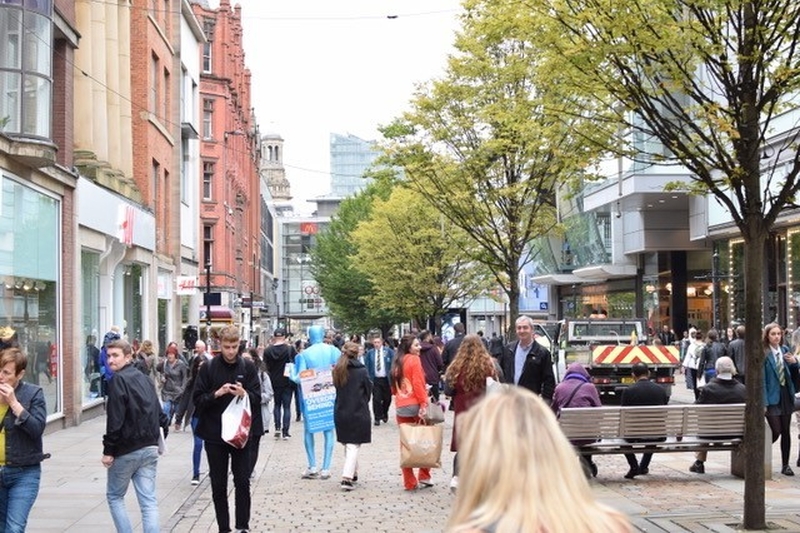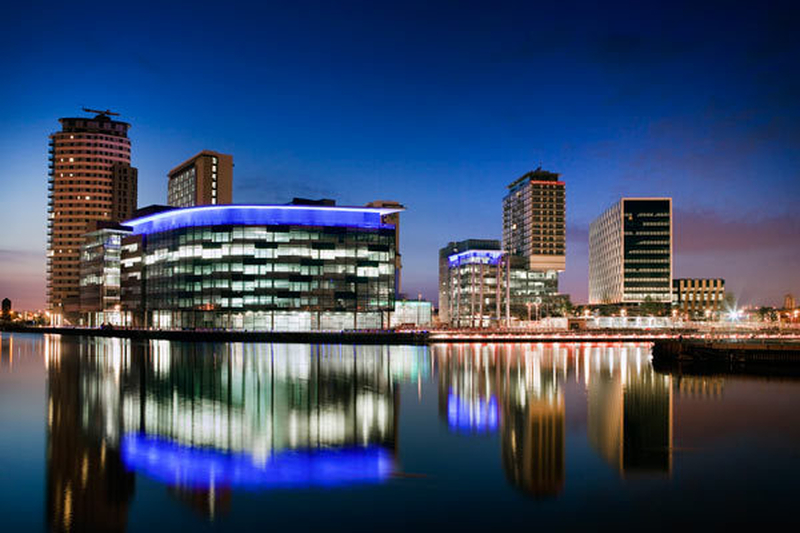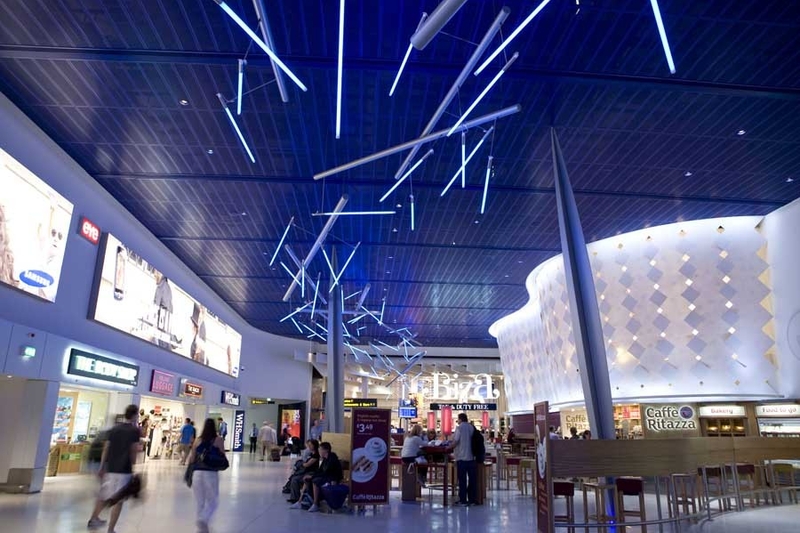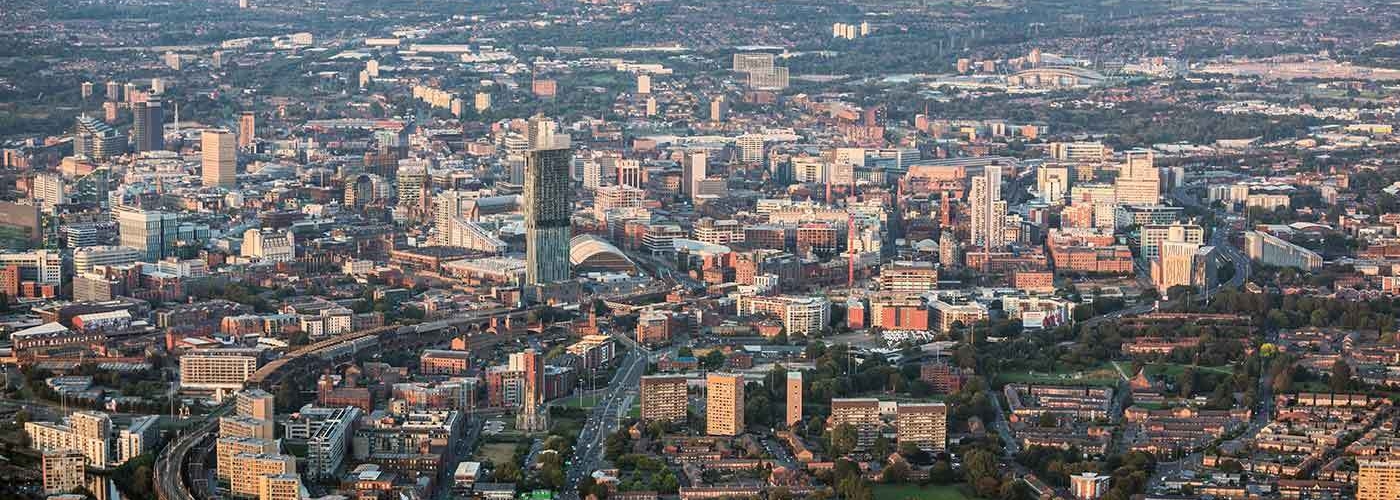The housing crisis. A strained NHS. Thundersnow? It's easy to get down on the city - but we really shouldn't
Manchester is a boom town - a hive of economic activity. They say you should judge a city by how many cranes you see in the sky. By this metric, we are surely onto a winner (though we may see a few disappear following the collapse of Carillion). Ever-ambitious plans to line our city centre with glass skyscrapers are turning Manchester into a crystal metropolis - the stuff of sci-fi comic books.
Of course, many problems remain: rising homelessness, waning public services and, in many areas, poverty and deprivation persist. And while I don’t wish to sweep these under the carpet, sometimes it is important that we recognise the positives.
Below I have listed four reasons why Manchester should be proud of itself and the path that the city region is taking...
"Manchester has been the leading recipient of foreign direct investment amongst England's major urban centres in every year since 2009"
Manchester has repopulated
In 2018, we will reach the point at which the City of Manchester has re-populated to a level last seen before the deindustrialisation of the 1970s. This is a significant mark of our success. Today’s agglomeration of businesses, industries and traders has made the city more prosperous than at any point in living memory, forming the densest cluster of employment outside of London.
There has been a tendency in recent years to look back through those decades of decline with warmth and nostalgia. Confidential got in on the act earlier this year when it published this series of photos from the 1960s, describing the slum clearances – which moved swathes of Mancunians to places like Wythenshawe and Middleton – as 'socially disastrous'. What people often forget is that those residents wanted to escape the squalid slums, to move to estates with better schools and plentiful green spaces. In short, they sought a better standard of living.
So what has reversed the thirty year decline in our population? A number of things: more births than deaths; immigration and tolerance; more student places; a boom in the service sector industries, which drew in more graduates and young professionals, who then took advantage of more affordable housing and a growing cultural offering (these people then told their mates).
It's no one thing. But this population revival has led to the economic success of the city, and vice versa.

Manchester has never been more prosperous
According to Manchester City Council's Quarterly Economic Dashboard, the number of rateable buildings is on the increase, owing to the additional economic activity that is taking place in the city. Added to that, of all core cities - including Birmingham, Glasgow and Cardiff - Manchester has the highest vacancy rate because its jobs market is expanding so rapidly.
The result has been rising incomes, now amongst the greatest of the metropolitan cities. According to the Annual Survey of Hours and Earnings (ASHE), the gap in median weekly wages between Manchester and Birmingham is increasing. In 2016, there was only £4 between us; today that figure is more than £20. The expanding jobs market is forcing up wages in the city, putting pressure on the labour market and giving workers the upper hand over capital.
Helping to increase the supply of capital piling in from abroad is our competitive advantage over our counterparts. EY's 2016 'Attractiveness Survey' states: "Manchester has been the leading recipient of foreign direct investment (FDI) amongst England's major urban centres in every year since 2009".
The latest report suggests that we are still the main beneficiary. It is important to be seen as an open, international and attractive city: somewhere to invest your money. This is especially important in the wake of Brexit.

Manchester is an increasingly international city
The present-day economic revival of Manchester has been (in part) led by the city’s ability to retain its graduates. We don’t only retain domestic students but our universities are a magnet for international ones as well. The University of Manchester is one of the most popular destinations for Chinese students, which will only be amplified by the new flight path to Beijing, which will also attract more Chinese businesses.
The internationalisation of our universities is not only a considerable export, it is also feeding our young, dynamic and well-educated workforce; the workforce that has contributed to a city-centre property boom and helped to make Manchester an attractive option for many global businesses.
Manchester Airport is also seeing an increasing number of people flying into the world’s financial centres; with destinations in the Middle East and New York being amongst the most popular routes.
This international reputation has led to this growth. The influx of foreign capital and business generates employment, opportunity and (most importantly) contributes to pressure on the labour market, which pushes up wages. Good incomes rely on plentiful capital and productive employees, two things which are a consequence of our internationalism.

Room to grow
Greater Manchester is about to start getting a bigger slice of the pie. The Greater Manchester Forecasting Model and the ONS population projections predict that population will continue to grow in every corner of the city region, while employment will cluster in the central districts. Interestingly, growth is expected to be greatest in Salford (18.8%) - not Manchester (14.1%)
Table 1: Employment and Population Growth Forecasts (2016 – 2036)
| Employment Growth | Population Growth | |
| Bolton | 7.3% | 7.4% |
| Bury | 7.7% | 8.8% |
| Manchester | 14.1% | 14.8% |
| Oldham | 2.1% | 7.5% |
| Rochdale | -2.1% | 4.5% |
| Salford | 18.8% | 17.3% |
| Stockport | 9.0% | 9.6% |
| Tameside | -3.6% | 6.8% |
| Trafford | 12.4% | 14.4% |
| Wigan | -0.2% | 6.5% |
| GM average | 8.9% | 10.2% |
Source: GM Forecasting Model and ONS Population Projections
14.1% growth in Manchester, of course, adds up to many more jobs than Salford’s 18.8%, but these numbers suggest that Salford is at least beginning to catch up, which is no doubt due to the success of MediaCityUK. Some boroughs will see marginal declines in employment, however, their residents will be able to take advantage of growth in metropolitan centres.
Interestingly, population growth in the boroughs outside of the City of Manchester will see sections of the 20-29 year old age group grow more favourably. We are at a tipping point where these 20-somethings are looking to the outskirts for lower rents, greener spaces and a lounge with enough room to swing a cat. The influx of these young turks will transform corners of Greater Manchester beyond recognition.
Councillor John Blundell is a graduate of economics at the University of Manchester and was elected to Rochdale Metropolitan Borough Council at the age of 20. He has worked as an economist both in London and Manchester.
He is currently the cabinet member for Regeneration on the council and wants to use his professional skills to contribute to the debate on Greater Manchester's economy.















